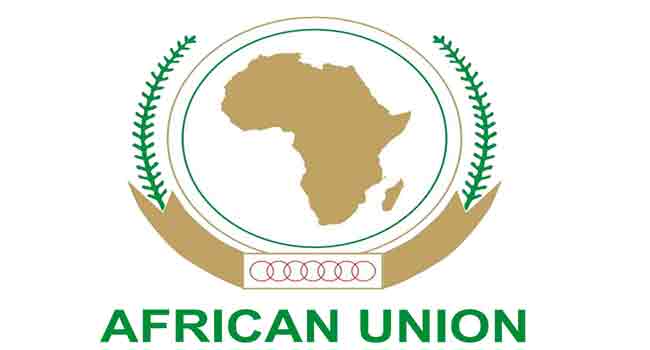The African Union and the Economic Community of West African States have stressed the importance of a unified regional strategy to deal with the changing security issues across Africa.
This position was expressed during the first joint meeting between the AU Peace and Security Council and the ECOWAS Mediation and Security Council at the Ambassadorial level in Abuja on Wednesday.
Nigeria’s Permanent Representative to ECOWAS and Chair of the ECOWAS Mediation and Security Council, Ambassador Musa Nuhu, pointed out the evolving nature of Africa’s security situation.
Nuhu highlighted the rise of new and complex threats, such as terrorism and violent extremism as well as unconstitutional changes in government.
Nuhu emphasized the need for collaborative efforts transcending national borders to effectively tackle these challenges.
He stressed the importance of joint discussions between the AU and Regional Economic Communities as crucial platforms for fostering a collective response to mitigate these security threats.
Nuhu stated, 'For a long time, security challenges in Africa have caused great difficulties for our people.'
“Since its inception, the ECOWAS MSC at the Ministerial and Ambassadorial levels has played a critical role in addressing security challenges through mediation missions, peacekeeping operations, and counter-terrorism efforts, which were hosted by the ECOWAS Authority of Heads of State and Government.
“However, it must be clearly stated that the security landscape in Africa is a dynamic one, constantly presenting new complex threats from terrorism and violent extremism to unconstitutional changes of government. These challenges demand a unified response that goes beyond our national boundaries and requires collective efforts.”
The chair highlighted the importance of cooperation in various areas, ranging from preventing unconstitutional government changes to implementing counter-terrorism measures and promoting peace initiatives.
He further stressed the need to extend discussions beyond politics to encompass economic development, humanitarian intervention, and social cohesion, all crucial elements for achieving lasting peace across Africa.
In the same vein, the Permanent Representative of The Gambia to the African Union and Chairperson of the Peace and Security Council, Ambassador Jainaba Jagne, emphasized the importance of collaboration and cooperation in preventing, managing, and resolving conflicts.
Jagne highlighted the challenges posed by terrorism, violent extremism, and unconstitutional changes of government in the region, underscoring their detrimental effects on peace, security, and stability.
She expressed confidence in the collective effort to counter these threats and reverse the current trends.
She noted, 'We need to stress the critical role and the absolute necessity of our collaboration and cooperation in preventing, managing, and resolving conflicts.
“Our region is currently faced with the surge of terrorism and violent extremism, and the resurgence of unconstitutional changes of government, which have serious negative consequences for peace, security, and stability in our community.
"Together, we can change this unfortunate pattern."
The 15-country group ECOWAS, created in 1975 to encourage economic integration among member nations, has faced difficulties in recent years in stopping a series of military takeovers in the area, such as in Mali in 2020 and 2021, Burkina Faso in 2022, and Niger last year.
The departure of three countries from ECOWAS endangered the African Continental Free Trade Area, which aims to speed up trade within Africa and enhance the continent’s trading position globally.
Previously, ECOWAS enforced economic penalties on the countries.
However, the sanctions were lifted in February 2024 after the involvement of Nigeria’s former military leader, Gen. Yakubu Gowon.
Omar Touray, the President of the ECOWAS Commission, said the choices were made in the interest of unity and security in the African sub-region.



